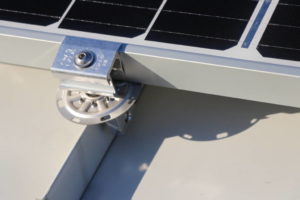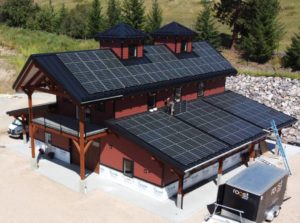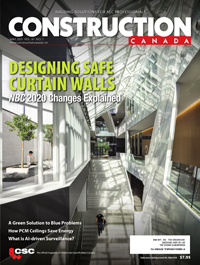Choosing metal roofs for solar photovoltaics

Maximizing lifetime ROI
When thinking about installing rooftop solar, often a new roof is required. Metal roofing has become a driver for roof type selection because the initial costs of a metal/solar roof system can be lower than other roof system combinations, and it also leads to improvements in the lifetime ROI of the system. This is why the PV array and the roof should be regarded as a single asset.
When computing ROI within the solar pro forma, inverter replacement is usually factored in at about year 15—but what about the cost of roof replacement? The solar array must be completely dismantled and re-installed on the replacement roof. Factor in the inevitable cost of roof replacement and the advantages of a metal roof become obvious.
A number of exorbitant expenses associated with completing a PV system re-roof for a traditional (non-metal) roof could include:
- removing the solar modules
- removing the mounting and racking system
- de-commissioning the system during the re-roof
- re-roofing, re-installing the PV system
- re-commissioning the system
- potential damaged components during
this process - need for significant new wiring
- loss of power production during downtime
of the entire process above

The metal roof avoids replacement due to its long service life; the roof will remain fully functional even after the solar array has expired. It will still have sufficient service life to install the next generation solar array.
Canada’s path to net zero
Metal roofing has a major role to play in meeting Canada’s aggressive sustainability objectives. In addition to offering a slate of logistic, cost, and longevity benefits, it is a roofing material that has the nation’s net-zero goals covered.
“What Canadian workers need is a government with a real, robust industrial policy; a government committed to investing in the net-zero transition, to bringing in new private investment, and to helping create good-paying jobs from coast to coast,” said Freeland. “Canada’s road to net-zero calls for an industrial transformation comparable in scale only to the Industrial Revolution itself—and Canada is blessed with the talented people and the raw materials and industries needed to drive that transformation.”
Notes
1 Refer to the Fall Economic Statement 2022, www.budget.canada.ca/fes-eea/2022/report-rapport/toc-tdm-en.html.
2 Read the U.S. Inflation Reduction Act, www.congress.gov/bill/117th-congress/house-bill/5376.
3 Refer to “Benchmarking Utility-Scale PV Operational Expenses and Project Lifetimes,” eta-publications.lbl.gov/sites/default/files/solar_life_and_opex_report.pdf.
4 Learn about the service life comparisons of metal roofing and solar photovoltaics (PV) systems here, metalconstruction.org/index.php/online-education/metal-roofing-and-solar-pv-systems–part-1–service-life-comparisons.
5 Consult “Continuing Ed for Metal Building Materials,” MCA Metal University White Papers, metalconstruction.org.
6 See “Steel Takes the LEED with Recycled Content,” American Iron and Steel Institute, August, 2009.
Rob Haddock, director of the Metal Roof Advisory Group and CEO and founder of S-5!, is a former contractor, award-winning roof-forensics expert, author, lecturer, and building envelope scientist who has worked in various aspects of metal roofing for five decades.



